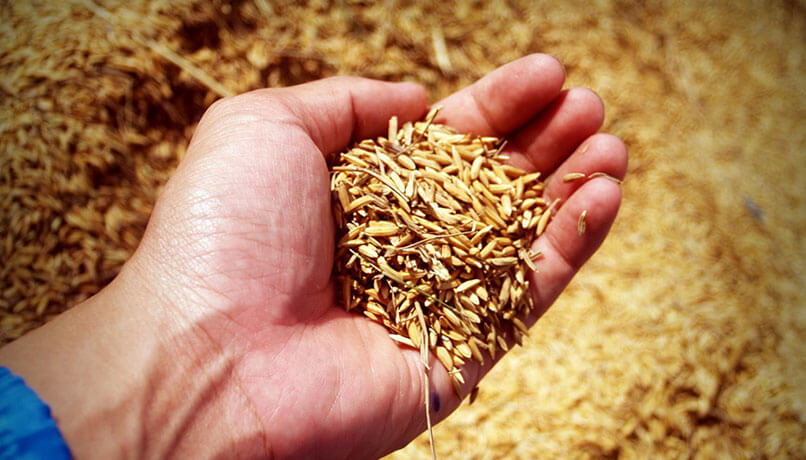 With consumers expectations on the rise, as a restaurateur or service industry professional, using sustainable produce is of the utmost importance.
With consumers expectations on the rise, as a restaurateur or service industry professional, using sustainable produce is of the utmost importance.
Being able to give back to nature what we have taken should be in our DNA; however, the sad truth is that this is not the case - most consumers mentality is to go down to the local cafe, restaurant, fishmonger or butcher and find what we are looking for. This for the consumer is where it starts and ends.
Looking at the bigger picture
 As an industry professional, we need to be looking at the big picture - with restaurants popping up every day and the world's population not decreasing in any way, being a sustainable partner in the industry is crucial. Buying fish or seafood from a fish wholesaler who is taking part in the reconstitution of stock to our seas and or waterways goes a long way to help save or preserve a species, forcing the hand of other seafood suppliers to follow suit.
As an industry professional, we need to be looking at the big picture - with restaurants popping up every day and the world's population not decreasing in any way, being a sustainable partner in the industry is crucial. Buying fish or seafood from a fish wholesaler who is taking part in the reconstitution of stock to our seas and or waterways goes a long way to help save or preserve a species, forcing the hand of other seafood suppliers to follow suit.
Overfishing
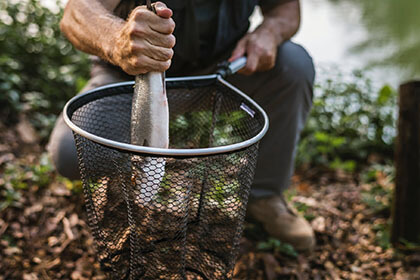 For Aboriginal and Torres straight islanders, fishing and collection sea animals is a way of life and fisheries are often denied access to control the indigenous waters. In the north sea, we as humans have almost depleted the British cod with consumers obsession with fish and chips. As the fisheries put a ban on fishing certain species to put boats out of commission, these species have luckily been restored, and a sustainable program put in place.
For Aboriginal and Torres straight islanders, fishing and collection sea animals is a way of life and fisheries are often denied access to control the indigenous waters. In the north sea, we as humans have almost depleted the British cod with consumers obsession with fish and chips. As the fisheries put a ban on fishing certain species to put boats out of commission, these species have luckily been restored, and a sustainable program put in place.
Demand for meat produce
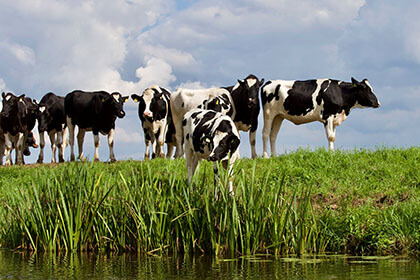 The exportation of meats out of Australia is a booming trade, mostly to Asia because of the constant demand for top quality meats. However, this is what is forcing farmers to take shortcuts, take Indonesia for example - the total amount of cattle reared per year is approx 16.6 million head. By 2020, the population in Indonesia alone is expected to rise from 251 million to 274 million. With Java being the highest consumers of beef in Indonesia, 54% of Indonesians living on the island alone.
The exportation of meats out of Australia is a booming trade, mostly to Asia because of the constant demand for top quality meats. However, this is what is forcing farmers to take shortcuts, take Indonesia for example - the total amount of cattle reared per year is approx 16.6 million head. By 2020, the population in Indonesia alone is expected to rise from 251 million to 274 million. With Java being the highest consumers of beef in Indonesia, 54% of Indonesians living on the island alone. 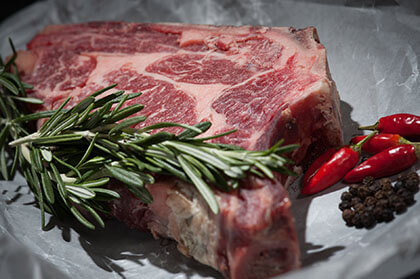 This is putting a strain on production globally, as meat is being sourced wherever they can get it. This sets aside the quality side of meat - they are taking what they can get for the best price. I say follow the oil and gas companies and put a benchmark on the price - heavily tax the importers, raise your stocks right, don't take shortcuts to meet demand. As a chef, I am not going to rush cooking a risotto just because the consumer is in a hurry.
This is putting a strain on production globally, as meat is being sourced wherever they can get it. This sets aside the quality side of meat - they are taking what they can get for the best price. I say follow the oil and gas companies and put a benchmark on the price - heavily tax the importers, raise your stocks right, don't take shortcuts to meet demand. As a chef, I am not going to rush cooking a risotto just because the consumer is in a hurry.
Looking at what we're consuming
 As a young chef, I remember reading an article regarding Grana Padana, the stock levels being so high that they cannot get rid of it. However, after Massimo Bottura created a recipe using the aged cheese, popularity was on the rise, and as a worldwide population, we seriously need to take a look at what is getting consumed. We also need to look to our heroes such as Massimo to increase popularity in such less popular cuts of meats, in the hope to relieve the pressure on the more popular cuts.
As a young chef, I remember reading an article regarding Grana Padana, the stock levels being so high that they cannot get rid of it. However, after Massimo Bottura created a recipe using the aged cheese, popularity was on the rise, and as a worldwide population, we seriously need to take a look at what is getting consumed. We also need to look to our heroes such as Massimo to increase popularity in such less popular cuts of meats, in the hope to relieve the pressure on the more popular cuts.
How you can help as a consumer
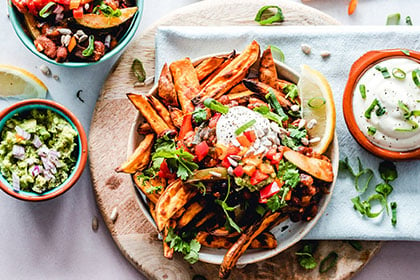 Next time you go to your butcher and or fish monger, ask questions - what are you doing to ensure that the stock levels of your produce are sustainable. If they look at you like a deer in the headlights, kindly say to them when you have this process in place I will return until then, but until then, I will take my business somewhere else. If we all did this, the world would be a better place. After all, I would like my kids to have the joy of tasting a piece of grilled pink snapper or cod.
Next time you go to your butcher and or fish monger, ask questions - what are you doing to ensure that the stock levels of your produce are sustainable. If they look at you like a deer in the headlights, kindly say to them when you have this process in place I will return until then, but until then, I will take my business somewhere else. If we all did this, the world would be a better place. After all, I would like my kids to have the joy of tasting a piece of grilled pink snapper or cod.
.png?width=1571&height=766&name=CFD%20knife%20and%20fork%20logo%20(carbonfriendlydining.org).png)

